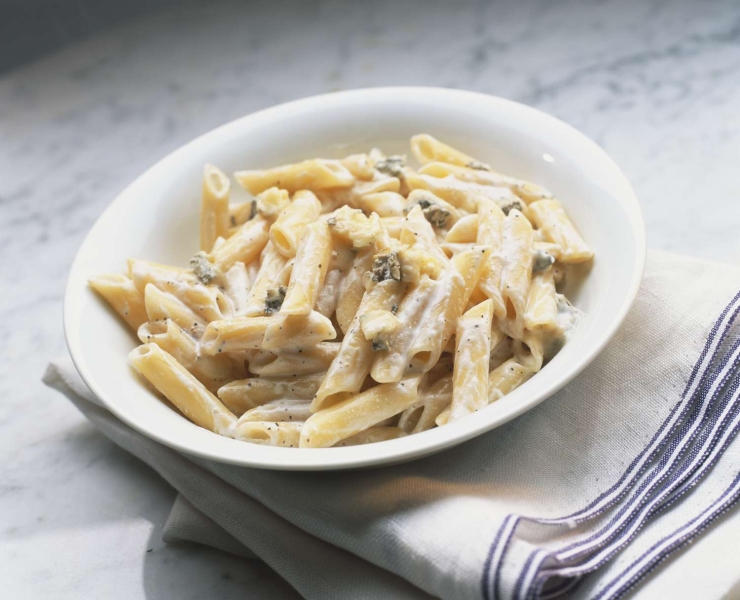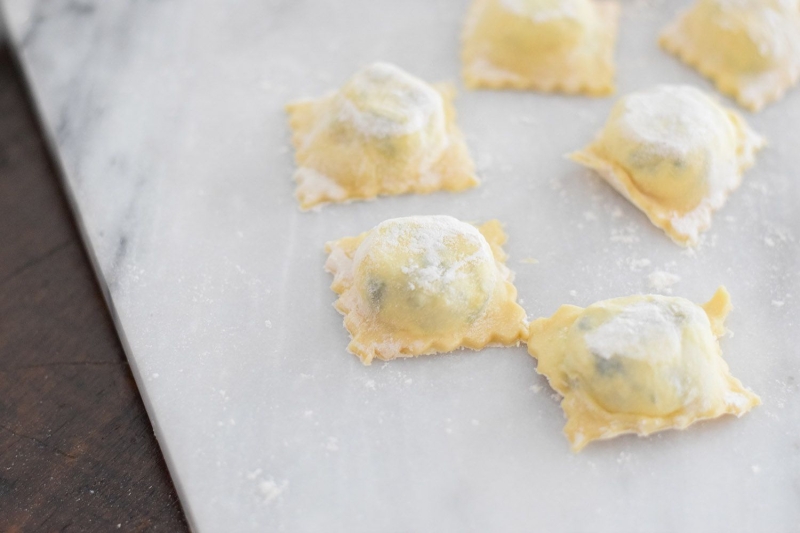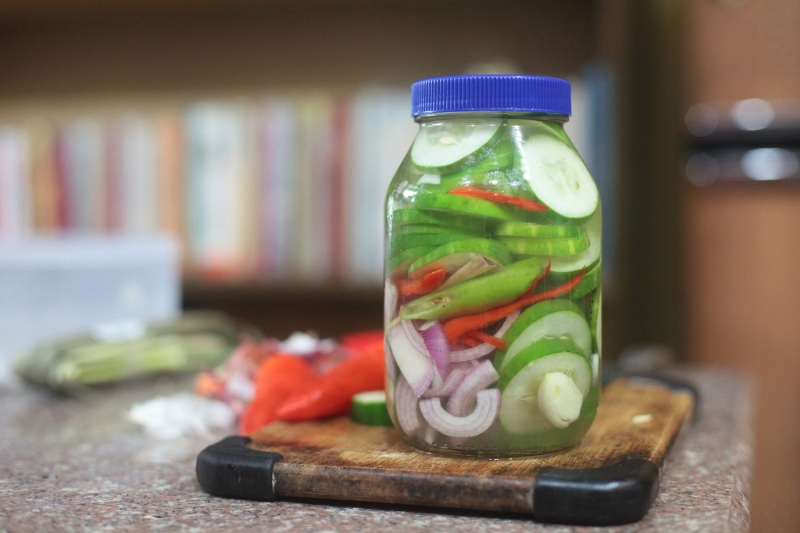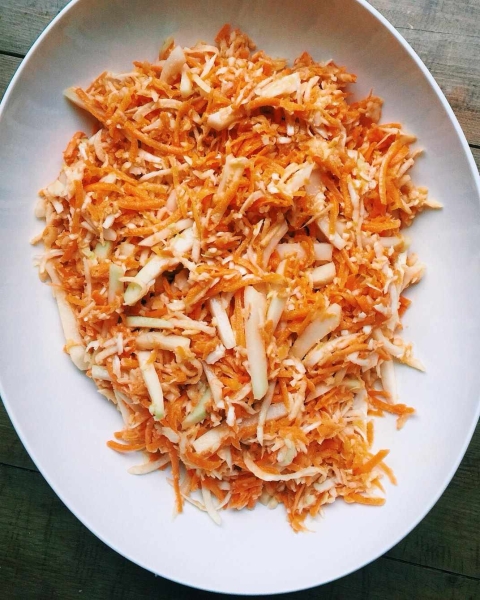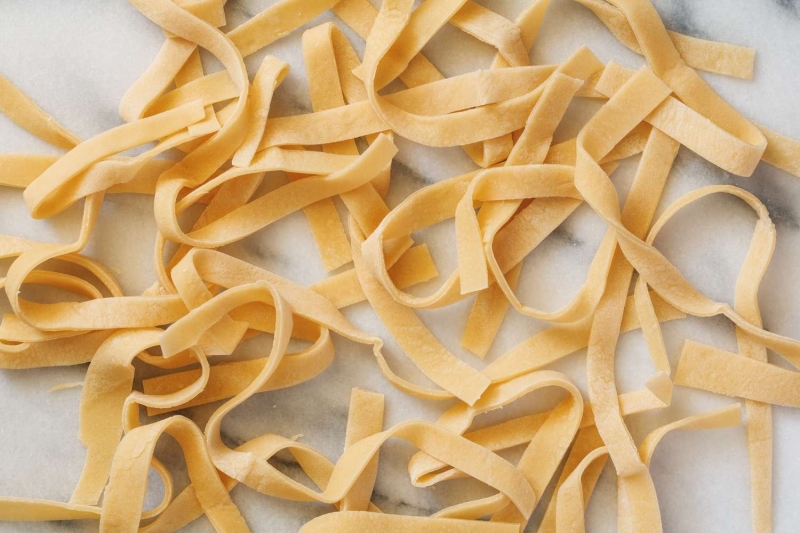
Prep: 30 mins
Cook: 10 mins
Chill: 30 mins
Total: 70 mins
Servings: 2 to 4 servings
Egg noodles are easier to make from scratch than you may think. This old-fashioned egg noodle recipe is made with flour, eggs, and salt. If you've tried making Italian homemade pasta before but weren't thrilled with the process or results, these egg noodles are much simpler. They're also easier to work with because you don't have to roll the dough out as thinly as you would for Italian-style pasta.

How to Serve
A good substitute for pasta, serve the egg noodles with your favorite sauce. They also make an excellent noodle casserole and can be enjoyed alongside a hearty stew or used in soup. These homemade egg noodles can be used instead of rice for most dishes, or make the ultimate comfort food by tossing them in a large bowl with butter and serving with grated cheese.
Make Ahead
Cook the homemade egg noodles while still fresh, or set them out to dry and store the noodles for future use. As long as you have enough counter space, this recipe can be doubled or even tripled. You can also start a second batch while the first round of dough chills.
Storing Homemade Egg Noodles
You may be tempted to store the uncooked noodles in the fridge or freezer to keep them "fresh." Avoid this temptation. It's really true that they store much better dried than they do in the refrigerator, where they will get soggy.
Difference Between Pasta and Egg Noodles
Many kinds of pasta use eggs, but egg noodles use a higher proportion of eggs to flour. This results in a richer flavor and a deeper yellow color in the noodles. Unlike pasta, they're most often used in casseroles, stews, and soups.
Egg noodles are often made with standard wheat flour. Semolina flour is popular for pasta because it creates a rougher texture that grabs sauce better.
While pasta comes in a variety of shapes, egg noodles are typically flat and wide. The exception is Asian egg noodles, which are typically thin and round, similar to spaghetti.
Tips for Making the Best Homemade Egg Noodles
- Use a pasta roller—If you have a pasta roller, you can use that instead of a rolling pin when rolling out the dough. This will lead to more evenly formed noodles.
- Air-dried noodles—You can let these uncooked noodles air-dry on a drying rack until completely dry and store them in an airtight container at room temperature for up to a month. The noodles will snap in half when completely dried.
- Cooking dried noodles—Cook dried egg noodles for 10 to 12 minutes.
- A humid kitchen—Humidity will affect the texture of the dough, so if you find the dough is still sticky after incorporating the full cup of flour, add more flour, a little at a time, while kneading until the pasta dough is easy to handle.
“If you like getting your hands a little messy and making things from scratch, homemade eggs noodles are right up your alley. The dough is very simple to make but requires a fair amount of kneading. I love kneading dough, and so do my kids, so we found this fun.” —Danielle Centoni
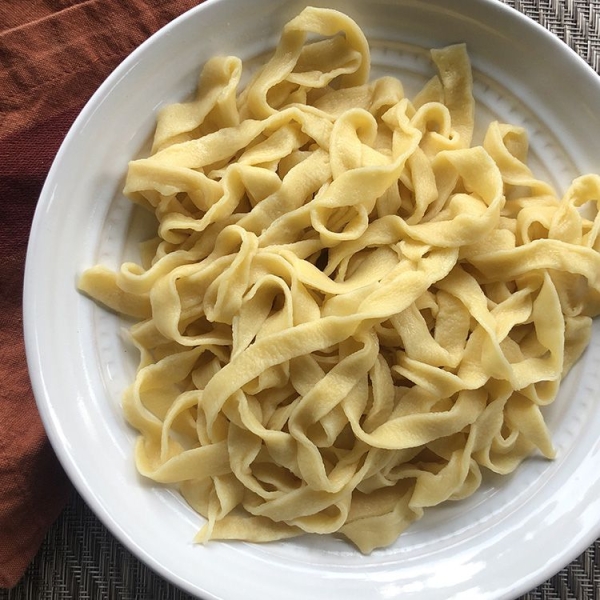
A Note From Our Recipe Tester Cook Mode (Keep screen awake)
Ingredients
-
1 cup all-purpose flour, more as needed
-
1/2 teaspoon fine sea salt
-
2 large eggs
Steps to Make It
-
Gather the ingredients.
-
Combine 1 cup all-purpose flour and 1/2 teaspoon fine sea salt in a large shallow bowl or on a clean work surface. Make a well in the center, almost like a "bowl" of flour, to hold the eggs. Crack 2 large eggs into it.
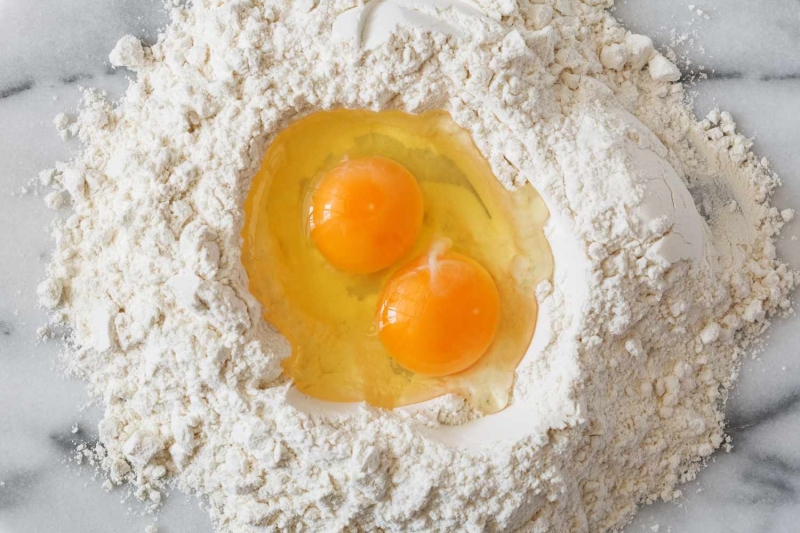
-
Use a fork to beat the eggs and then gradually start incorporating the flour into the eggs. As you beat them, they will slowly but surely take up some flour from the edges.
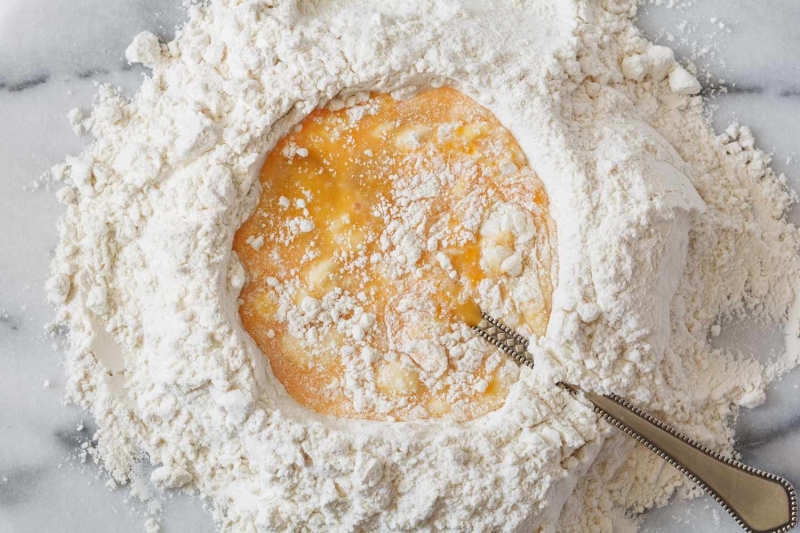
-
Keep stirring and pulling in more flour until a solid dough forms. The dough will be sticky. Don't worry; you'll be working in more flour in a moment. Add too much flour now, and the extra flour needed to roll out the noodles will lead to a dry rather than tender noodle.
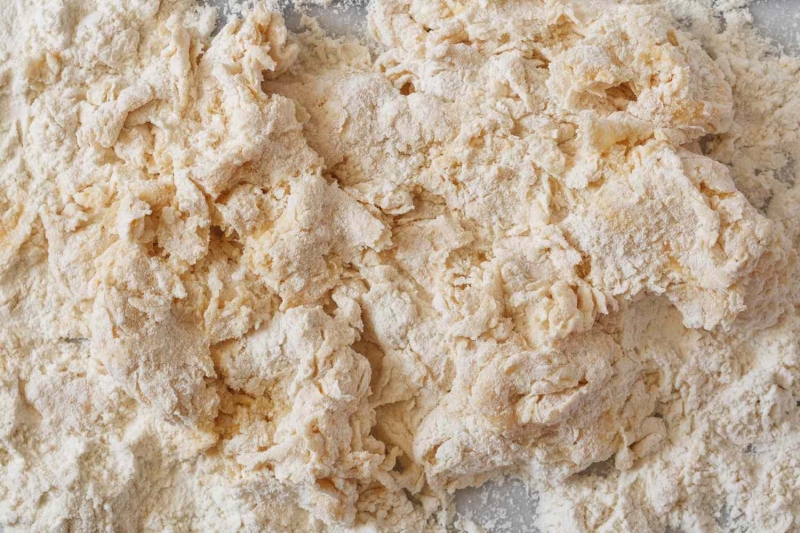
-
Turn the dough out onto a well-floured work surface. With well-floured hands, knead the dough, incorporating more flour as necessary to keep it from sticking to either the work surface or your hands until the dough is smooth and firm and no longer sticky. This takes roughly 5 to 10 minutes. Alternatively, use a stand mixer fitted with the paddle attachment.
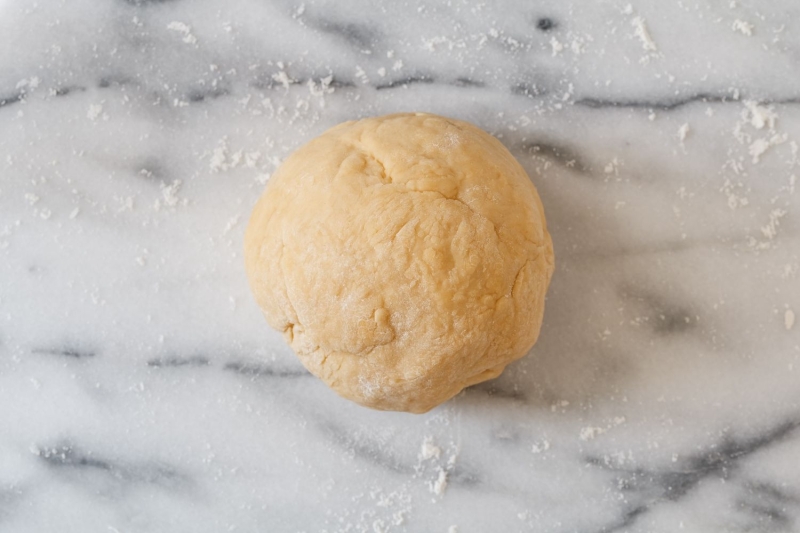
-
Wrap the dough with plastic wrap and chill it for at least 30 minutes and up to overnight.
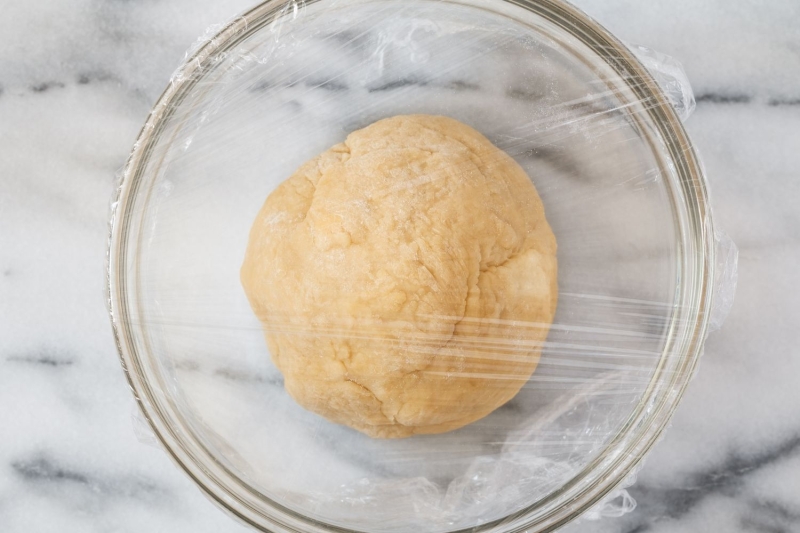
-
Divide the chilled dough into 2 pieces and work with one half of the dough at a time.
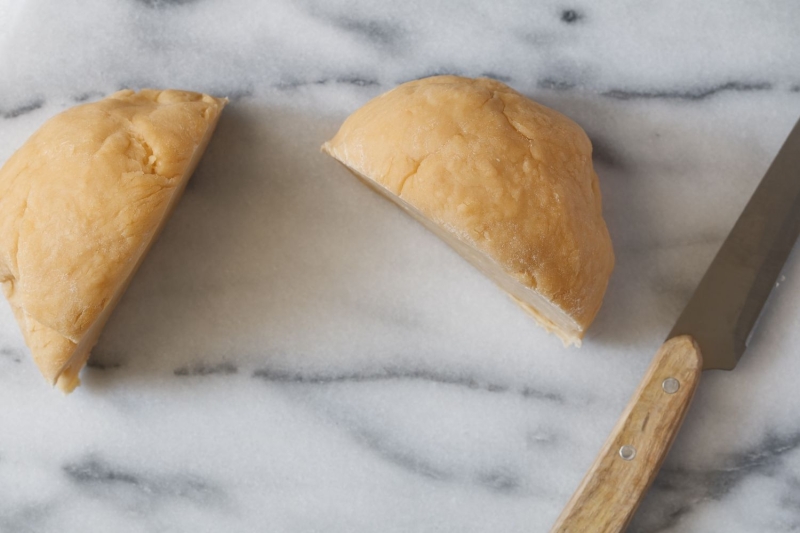
-
On a well-floured surface, roll out the dough to the desired thickness (anywhere from 1/4 inch to paper-thin, depending on your preference). Be sure to rotate or otherwise move the dough between each pass of the rolling pin to keep the dough from sticking to the work surface underneath. Sprinkle everything with flour—including the work surface when you lift the dough—as necessary to keep the dough from sticking.
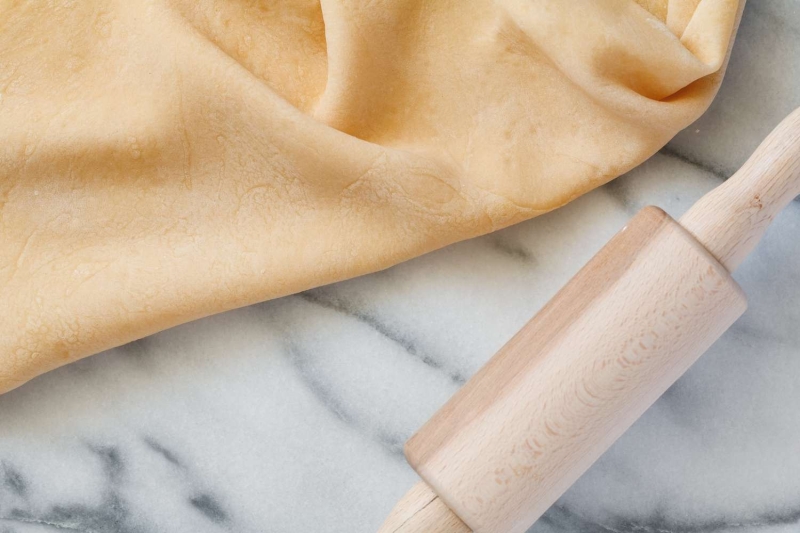
-
Use a sharp knife or pizza cutting wheel to cut the noodles. You can make them as narrow or wide as you like. Be sure to cut them as evenly as possible to ensure a uniform cooking time. If you fold the dough to cut, make sure it is floured so it does not stick together.
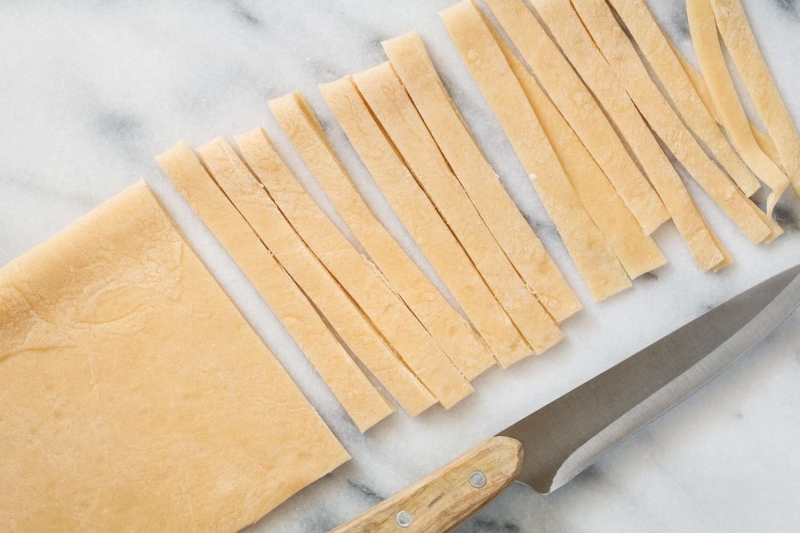
-
Lay the noodles on a cooling or drying rack and let them sit until ready to cook. Repeat rolling and cutting with the remaining half of the dough.
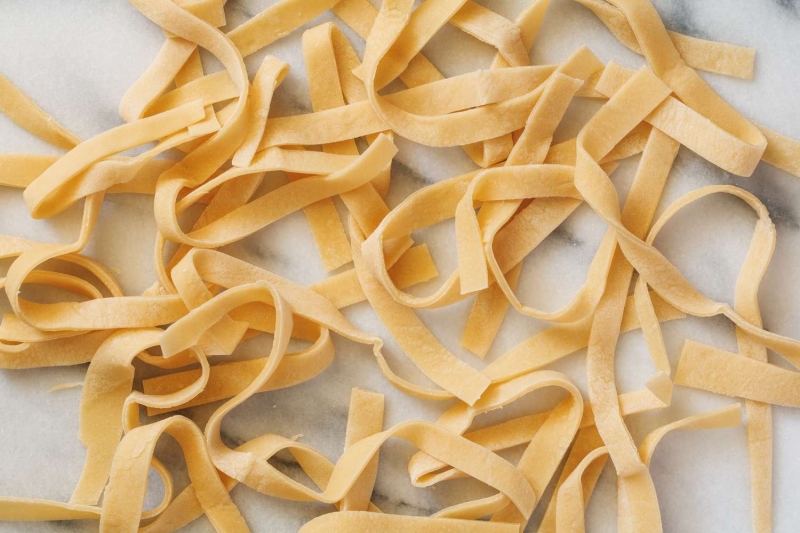
-
To cook, boil the noodles in well-salted water until tender to the bite (2 to 10 minutes for fresh noodles, depending on the thickness). Drain and use in your favorite recipe. Enjoy!
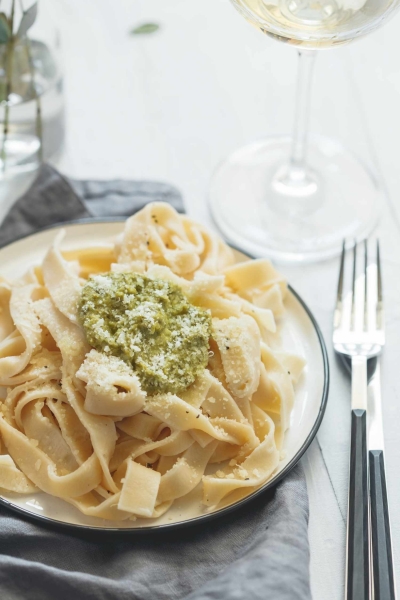
Feeling Adventurous? Try This:
- Added color—Knead in a teaspoon of ground turmeric for a beautiful golden color.
- Added elegance—Knead in a few finely chopped tablespoons of fresh parsley into the dough for an elegant presentation.
- Added spice—For a spicy kick, knead 1 or 2 teaspoons freshly ground pepper into the dough.
| Nutrition Facts | |
|---|---|
| Servings: 2 to 4 | |
| Amount per serving | |
| Calories | 150 |
| % Daily Value* | |
| Total Fat 3g | 3% |
| Saturated Fat 1g | 4% |
| Cholesterol 93mg | 31% |
| Sodium 300mg | 13% |
| Total Carbohydrate 24g | 9% |
| Dietary Fiber 1g | 3% |
| Total Sugars 0g | |
| Protein 6g | |
| Vitamin C 0mg | 0% |
| Calcium 19mg | 1% |
| Iron 2mg | 10% |
| Potassium 68mg | 1% |
| *The % Daily Value (DV) tells you how much a nutrient in a food serving contributes to a daily diet. 2,000 calories a day is used for general nutrition advice. | |
